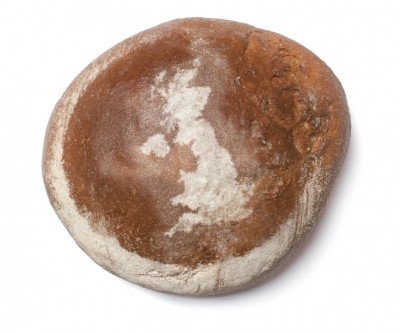Low vitamin D linked to muscle function for over 60s
Fortification need? Vitamin D deficiency linked to poor muscle function in older adults

The findings are based on the analysis of data from more than 4,000 older adults shows that low blood markers of vitamin D are linked to impaired muscle strength and performance.
Led by senior author Maria O'Sullivan from Trinity College Dublin, the team noted that maintaining skeletal muscle function throughout life is a crucial component of successful ageing, in promoting independence, mobility, quality of life and reducing falls and frailty.
They noted that while resistance exercise is known to preserve muscle function, there is also growing evidence that vitamin D may be protective.
"Our results show that vitamin D deficiency increased the likelihood of poor muscle function in older adults and confirms the protective effect of physical activity,” said O'Sullivan. “Maintaining muscle function is incredibly important, and often overlooked, in promoting healthy ageing. Addressing this through multimodal approaches that incorporate physical activity, reversing vitamin D deficiency and other modifiable diet and lifestyle components require further investigation."
Is fortification the answer?
Dr Niamh Aspell, first author of the study, added that the study’s findings add further weight to the evidence in favour of public health strategies to reduce vitamin D deficiency in older populations.
“Future research, however, should identify and focus on older adults with vitamin D deficiency and aim to better understand if reversing this deficiency improves skeletal muscle function,” she said.
Dr Eamon Laird, a co-author of the study, echoed this, noting that both vitamin D deficiency and physical activity are modifiable factors.
“Some countries, for example Finland, have successful implemented a vitamin D food fortification policy which has all but eliminated deficiency in the population,” he noted. “Such a policy could similarly be implemented in the UK and Ireland for older populations."
Study details
Writing in the international journal Clinical Interventions in Ageing, the Dublin-based team presented data from 4,157 community-dwelling adults aged 60 years and over, from the English Longitudinal Study of Aging (ELSA).
The study used two validated measures of muscle function (hand grip strength and the Short Physical Performance Battery (SPPB)) and also measured vitamin D status via serum 25-hydroxyvitamin D. A vitamin D status of lower 30 nmol/L was classed as vitamin D deficient, since this is the cut-off known to be associated with bone disease, said the team.
O'Sullivan and colleagues found that the prevalence of muscle weakness was twice as high among older adults with vitamin D deficiency compared with vitamin D adequacy, with 40.4% of those with the lowest levels of vitamin D also suffering from muscle weakness, while only 21.6% of those in with the highest levels of vitamin D suffered.
Similarly, impaired 'muscle performance' was 3 times higher in older adults with vitamin D deficiency (25.2%) compared with vitamin D adequacy (7.9%), said the team.
Based on their statistical analysis, the authors showed that vitamin D deficiency significantly increased the likelihood of impaired muscle strength and performance.
“Vitamin D deficiency was associated with impaired muscle strength and performance in a large study of community-dwelling older people,” concluded the researchers. “It is generally accepted that vitamin D deficiency at the <30 nmol/L cut-off should be reversed to prevent bone disease, a strategy that may also protect skeletal muscle function in ageing.”
Source: Clinical Interventions in Ageing
Volume 2019:14, Pages 1751—1761, doi: 10.2147/CIA.S222143
“Vitamin D Deficiency Is Associated With Impaired Muscle Strength And Physical Performance In Community-Dwelling Older Adults: Findings From The English Longitudinal Study Of Ageing”
Authors: Niamh Aspel, et al















